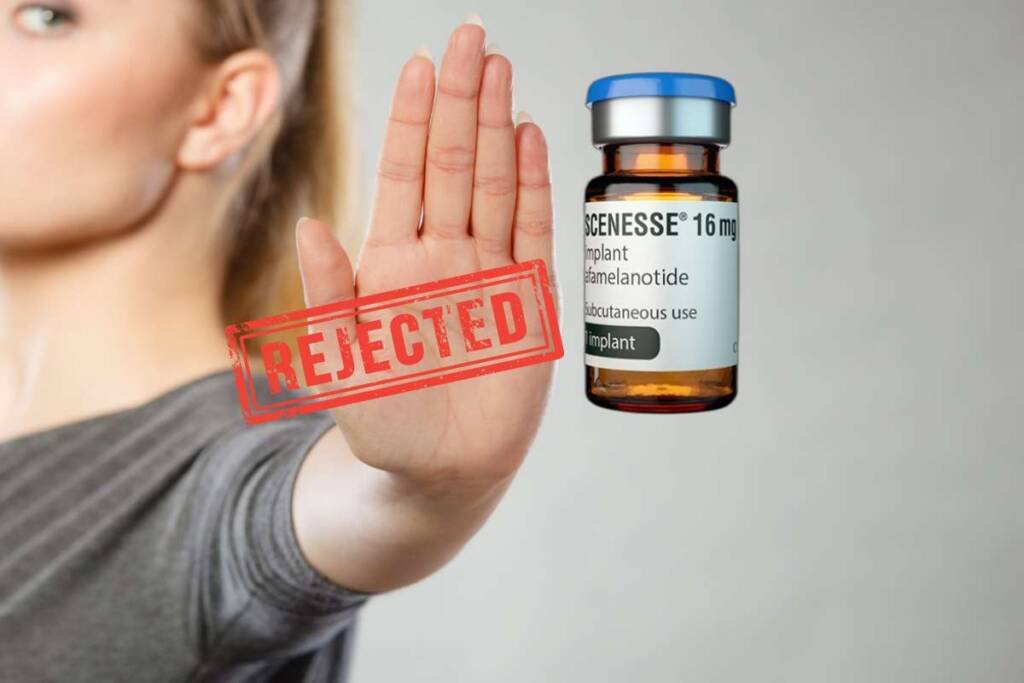The UK’s National Institute for Health and Care Excellence (NICE) has issued its final verdict on Clinuvel’s Scenesse, a treatment for a rare skin disorder called erythropoietic protoporphyria (EPP) that causes extreme light sensitivity, and unfortunately, it brings disappointing news for the company.
In the final guidance published, NICE confirmed that Scenesse (afamelanotide) cannot be recommended for use within the National Health Service (NHS) in England for patients with EPP. This genetic disorder results in severe pain upon exposure to natural and artificial light, and the only way for affected individuals to avoid phototoxicity is to avoid light altogether since there are no other approved treatments for the condition.
This decision highlights a disparity in access to the drug in the UK, as Scotland conditionally approved it for NHS use under an agreed patient access scheme in 2021, following its approval in Europe in late 2014 and in the US in 2019. The initial decision by the Scottish Medicines Consortium (SMC) will be up for review early next year.
In its latest recommendation, NICE acknowledged that Scenesse showed evidence of effectiveness for EPP, but the benefits were deemed uncertain, and conducting cost-effectiveness analyses proved to be “very challenging.”
This outcome comes after several years of Clinuvel appealing NICE’s initial rejection of the drug. An appeal panel from NICE concluded that the HTA had acted unfairly and deviated from its own processes, taking an excessive amount of time for the appraisal. However, the new decision seems to have placed access to the drug on hold for another four-year cycle, according to Clinuvel.
The British Porphyria Association (BPA) has said it is “immensely disappointed ” that the drug still cannot be accessed by patients in England who are being “denied access to what is presently considered the only effective treatment that is available for their condition.”
While some European countries, such as Germany and Switzerland, have agreed to reimburse the treatment with Scenesse, Clinuvel’s main focus now is on rolling out the drug in the US, where an estimated 4,000 out of the 10,000 global EPP-affected individuals reside.
Clinuvel’s Scenesse implant contains a melanocortin-1 receptor (MC1-R) agonist, which increases the production of eumelanin, one of the natural skin pigments. Clinical trials have shown that Scenesse can extend the number of hours EPP patients can spend in sunlight without experiencing pain, compared to a placebo.
Despite not being launched in England, Clinuvel has previously mentioned that the cost of the implant, which needs replacement every two months, would be £13,209 (approximately $17,000) plus VAT. The company remains firm on its pricing stance.
In 2022, Clinuvel saw a 19% increase in Scenesse sales, generating just under A$30 million (about $20 million). Now, the company confirmed receiving a five-year contract from the US Department of Veterans Affairs to supply the drug.





























